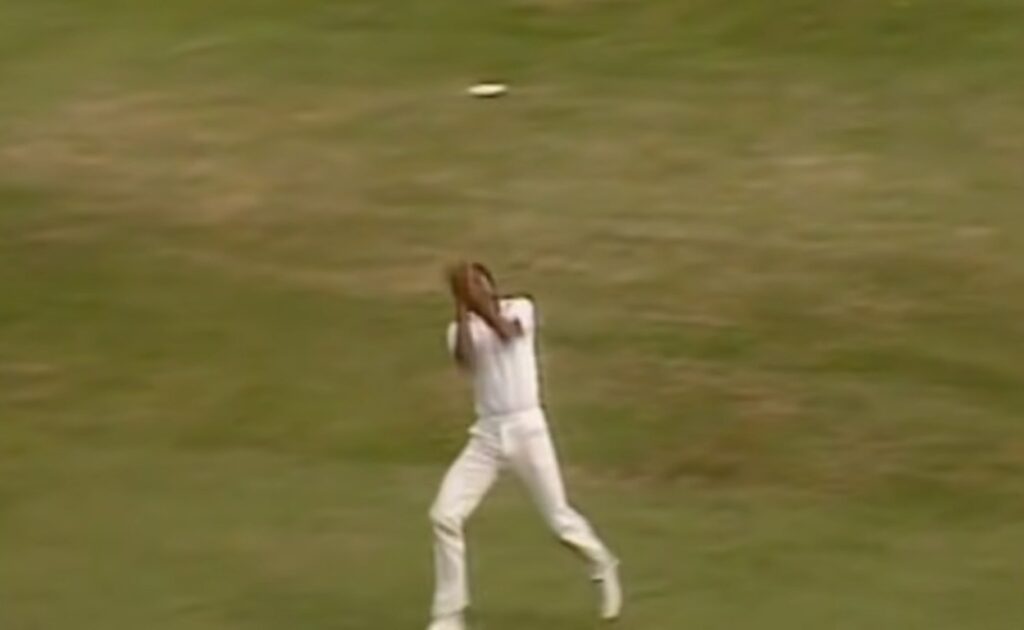
I have had the privilege of interviewing Kapil paaji several times. One of my personal favorites was the one at Lord’s after he had just finished giving away the awards to the Indian players as the Chair of the Jury of Indian Cricket Heroes, jointly organised by the RP Sanjiv Goenka Group and the Virat Kohli Foundation. Soon after the function, we were both standing opposite the nursery ground at Lord’s. The clock had ticked to about the same time as when India had won the World Cup in 1983. When asked if he was remembering that incredible occasion, all Kapil did was smile before opening up to narrate some fascinating stories about what happened on June 25, 1983 – the day Indian cricket changed forever.
Excerpts from the conversation:
Boria: Is it true that you had secretly carried a bottle of champagne with you on the morning of the final just in case…
Kapil: It was no secret. I did indeed carry a bottle of champagne, because I was confident of our chances based on the kind of cricket we had played in the Prudential Cup. And as the game got over, I went to the West Indian dressing room to speak to Clive Lloyd, and was surprised to see cartons of champagne lying around. Clive, who I still call skipper, was justly disappointed with the result, and I remember telling him that he and his boys wouldn’t need the champagne bottles, and they were better off being in our dressing room. Clive readily obliged, and I carried four champagne bottles back to our dressing room. Those are the bottles you have seen in photographs of our celebrations.
Boria: Against a line-up like West Indies, 183 wasn’t a very tall ask. At what point did you think you could actually win the game?
Kapil: I never thought that 183 was no total for them to chase. I was always looking at it from the point of view that we had scored 183, and they needed to score that many to win the cup. And I said to the boys that all we needed to do was bowl and field at our best for three hours to make history. Everyone was keen to make a contribution, and I have to say everything fell in place. As the fourth wicket fell, we started to feel we could close out the game because it was evident to us all that the West Indians were under pressure. We kept picking up wickets and with each one, the pressure mounted on them.
Boria: I have also heard that you finished off a bottle of milk soon after you returned to the dressing room after winning the game!
Kapil: Yes, I did because I was very hungry. And the milk here was very good, so it was something I really enjoyed. But that doesn’t mean that I did not have champagne thereafter!
Boria: I am sure you have been asked this question a million times, but I will still ask: when the Richards catch went up and you were under the ball, did any thought cross your mind?
Kapil: Yes, I have been asked this question many times before and I have to tell you my mind was completely blank when I was under the ball. When you are trying to take a catch, you can’t clutter your mind with negative thoughts. All you need to do is focus on the ball and take the catch. That’s what I did. It was a huge moment in the game, and I am glad the wicket fell at the time it did opening up the game for us.
Boria: Taking you back a little, would you say that the 175 not out you scored against Zimbabwe set the team up for what happened on June 25, 1983?
Kapil: What happened after the Zimbabwe game was that we as a team started to believe we could win from any situation. If we could win that match after being reduced to 17-5, we could beat any team in the world from any situation. After that victory, the captain had to do very little. The team was actually doing everything. The players would decide when they wanted to practice, and I did not have to push anyone to do anything. Everyone was just that extra bit motivated to give his best. They would stay out at the nets just that bit longer and the self-belief was what changed after the Zimbabwe game.
The other thing I can tell you about this game is that after winning the toss, I had actually planned to take a long hot shower because I was to bat at No. 6 or 7, and there was a lot of batting at the top. It was cold, and the warm shower was something I was looking forward to. Just then, someone called out for me, saying I had to go out and bat. When I went out, I asked the non-striker [the late Yashpal Sharma] what was happening, and he said he couldn’t describe what was going on. None of our batsmen were beaten even once. Each ball they edged, they were out. It was something extraordinary that was going on. All in all, it was an extraordinary day.



